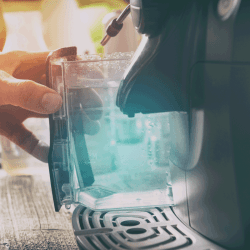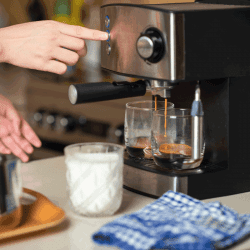Getting your kitchen appliances to work can be a struggle sometimes. Is your espresso machine having trouble dripping, and you don't know what could be wrong? Well, we've done our research and have the answers here for you. Let's get into it.
A clog or faulty brew valve are the two most likely causes for an espresso machine that's not dripping. Most times, giving your espresso machine a thorough cleaning and making sure nothing is built up or jammed into one of its valves/tubes will get your appliance fixed. However, you might need to contact your espresso maker's manufacturer if it's a mechanical defect, which would be a more serious problem.
As we begin, we will cover all things espresso machines and discuss how to get yours dripping again. Whether this isn't the first issue you've had with your device or if you haven't ever had to deal with this, we're here to help. With that said, let's dive right into this topic!
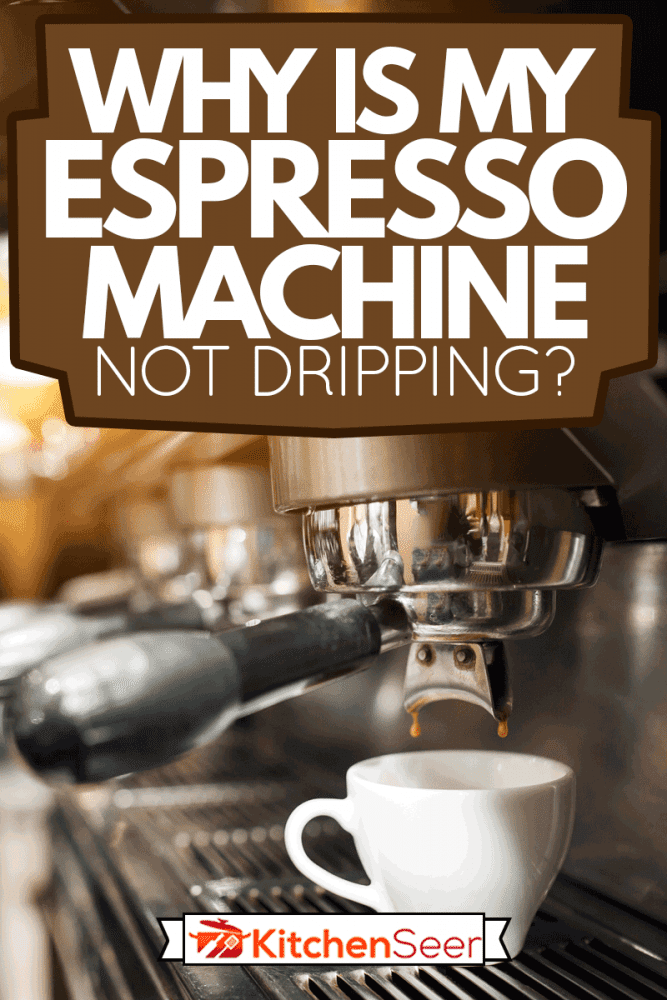
How Do You Unclog An Espresso Machine?
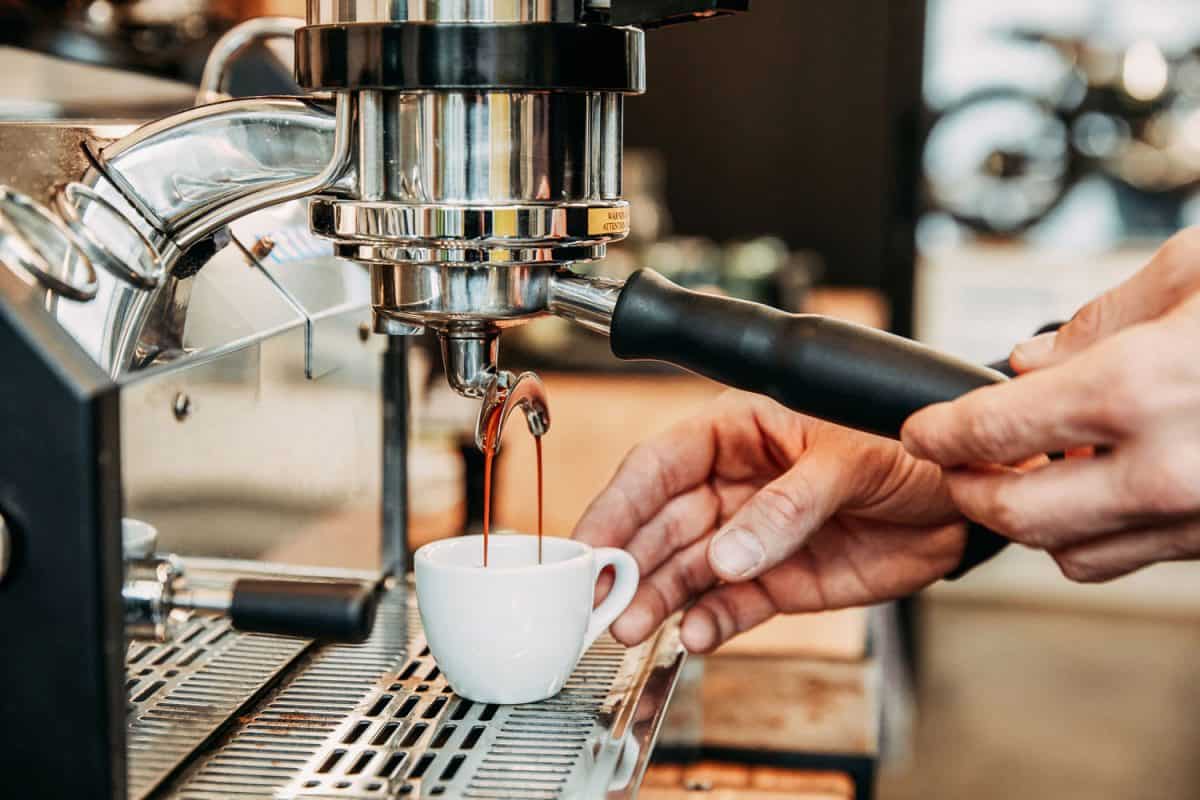
If you have a clogged espresso machine, getting it fixed won't take too long. We recommend giving your appliance a deep clean or "descaling" it, which should get things moving.
To start:
- Grab an espresso machine cleaning liquid/powder.
- Mix your product with water, following its designated instructions.
- Fill your machine's reservoir with the cleaning solution.
- Turn on your espresso maker, running a cycle with just the cleaner.
- Fill the reservoir with ONLY water and run one more cleaning cycle.
- Check if the water coming out of your machine is clear or cloudy.
- If clean, you can go back to using your device as usual.
Doing this should unclog anything in your system's valves, although you may need to run more than one cleaning cycle.
Impresa Universal Descaling Solution
This two-pack of espresso machine descaler works with all types of systems, eliminates limescale and mineral deposits, prevents corrosion, won't damage your machine, and comes in an eight-ounce bottle.
Click here to see more on Amazon.
What Can You Use Instead Of Descaling Solution?
If you don't have any descaling solution but need to clean your espresso machine, vinegar is your best bet. Although you shouldn't use it too often, diluted vinegar can benefit clogged appliances, and it won't usually harm your device.
That said, you want to make sure you mix three parts of vinegar to one part of water when descaling so you don't end up with sour-tasting espresso for the next week.
Vinegar can also be damaging if it isn't diluted; it can cause problems with the valves and other components in your machine, so don't forget to add water.
How Do You Clean An Espresso Machine Filter?
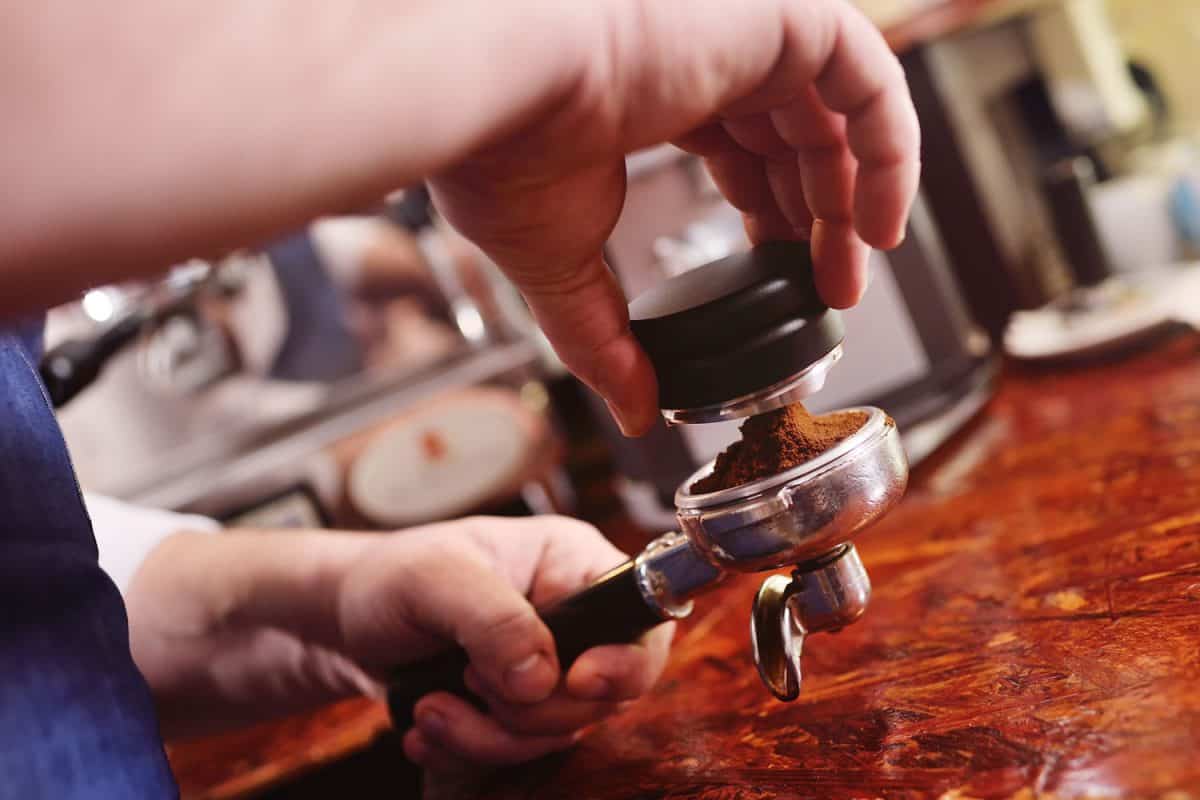
If you think it's time to clean your espresso machine's filter, you're in luck, because the process is simple.
We recommend soaking the filter(s) in hot water and a cleaning solution to loosen up any leftover coffee grounds and get your machine working efficiently once again.
You can do this for 10-15 minutes and then scrub your filter with a small brush or sponge afterward. Vinegar will also work for an espresso machine's filters, so if you don't have a specialty cleaning solution, that's another option to try.
Urnex Espresso Machine Cleaning Powder
This professional-grade espresso machine cleaner eliminates built-up residue and oil, is a powder formula, is NSF certified, and comes in a 20-ounce bottle.
Click here to see more on Amazon.
How Often Should I Clean My Espresso Machine?
Generally, you want to clean an espresso machine every 3-6 months. Although it is a good idea to give your system a thorough wipe down each time you use it, there's no need to descale more than every month or so.
Of course, this will depend on how often you use your machine and whether or not it's running efficiently, so you might end up having to clean it more often.
What Happens If You Don't Descale Your Espresso Machine?
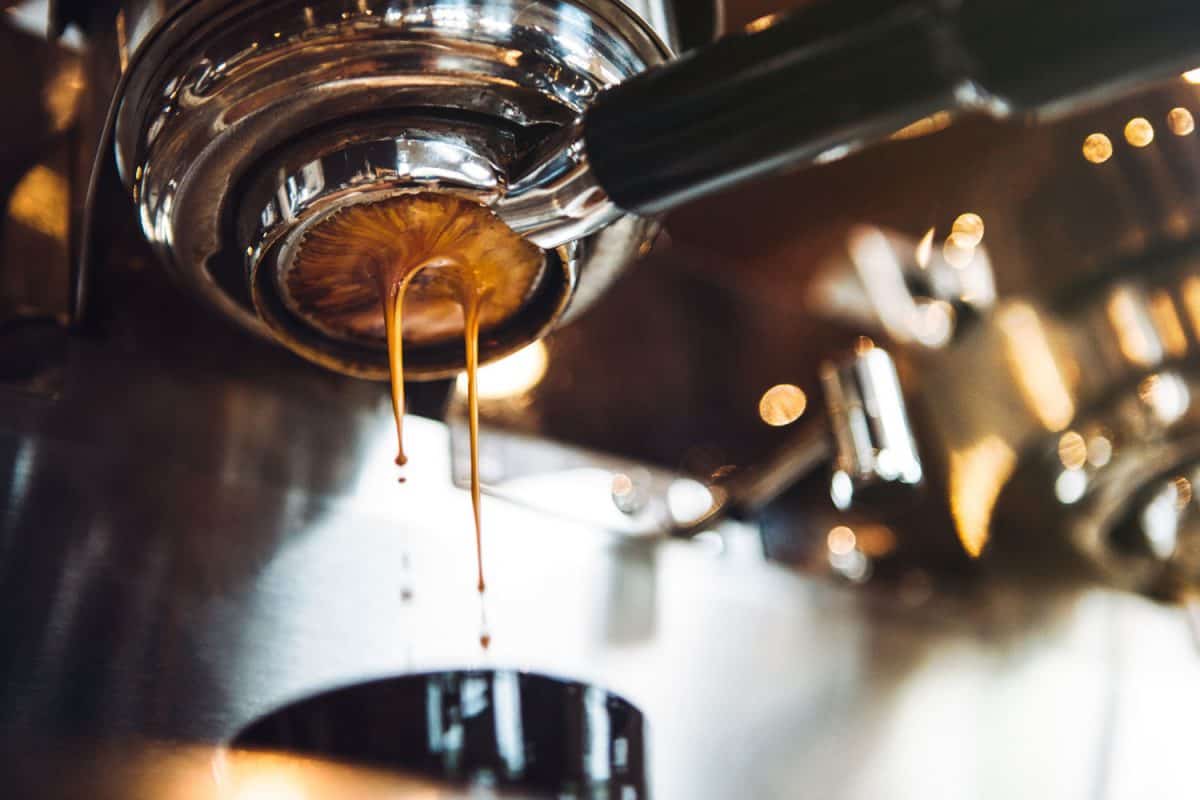
If you don't descale your espresso machine, expect lower quality coffee and more system problems. Typically, a dirty espresso machine won't be able to reach its optimal brewing temperature, which in turn won't allow it to make coffee as it should.
Your appliance will also start to experience mineral scale buildup and increased valve clogging, which can cause it to break entirely over time. So if you want to keep your machine working properly, we recommend cleaning it every few months.
Can A Dirty Espresso Machine Make You Sick?
Yes, a dirty espresso machine can make you sick. Like any other kitchen appliance, not cleaning your espresso machine can lead to bacteria buildup and even yeast and mold if it isn't adequately maintained.
Considering the water in an espresso maker doesn't get hot enough to decontaminate it, not cleaning one correctly is a recipe for disaster in terms of harmful bacteria making its way into your morning coffee.
Do You Have To Descale A Keurig?
Although a Keurig operates a bit differently than a traditional espresso machine, you still need to descale it. The brand recommends giving your system a deep clean every 3-6 months, which should prevent calcium deposits or scale buildup.
Again, this isn't a one-size-fits-all suggestion, so if you notice your coffee tasting different, it's probably time to descale.
Is Keurig Descaling Solution Better Than Vinegar?
We would recommend using Keurig's descaling solution for your appliance over vinegar. The brand has created this specifically for cleaning their coffee makers, so it's bound to give your system a deeper, more efficient descaling than other options.
That said, Keurig's descaling solution will cost a bit more than vinegar, but it has great customer reviews and a satisfaction guarantee, so we recommend it.
Keurig 3-Month Brewer Maintenance Kit
This 3-month maintenance kit includes a descaling solution, water filter cartridges, rinse pods, works just like a regular K-Cup, and promises to improve your coffee's taste.
Click here to see more on Amazon.
Can Coffee Be Ground Too Fine To Run Through An Espresso Machine?
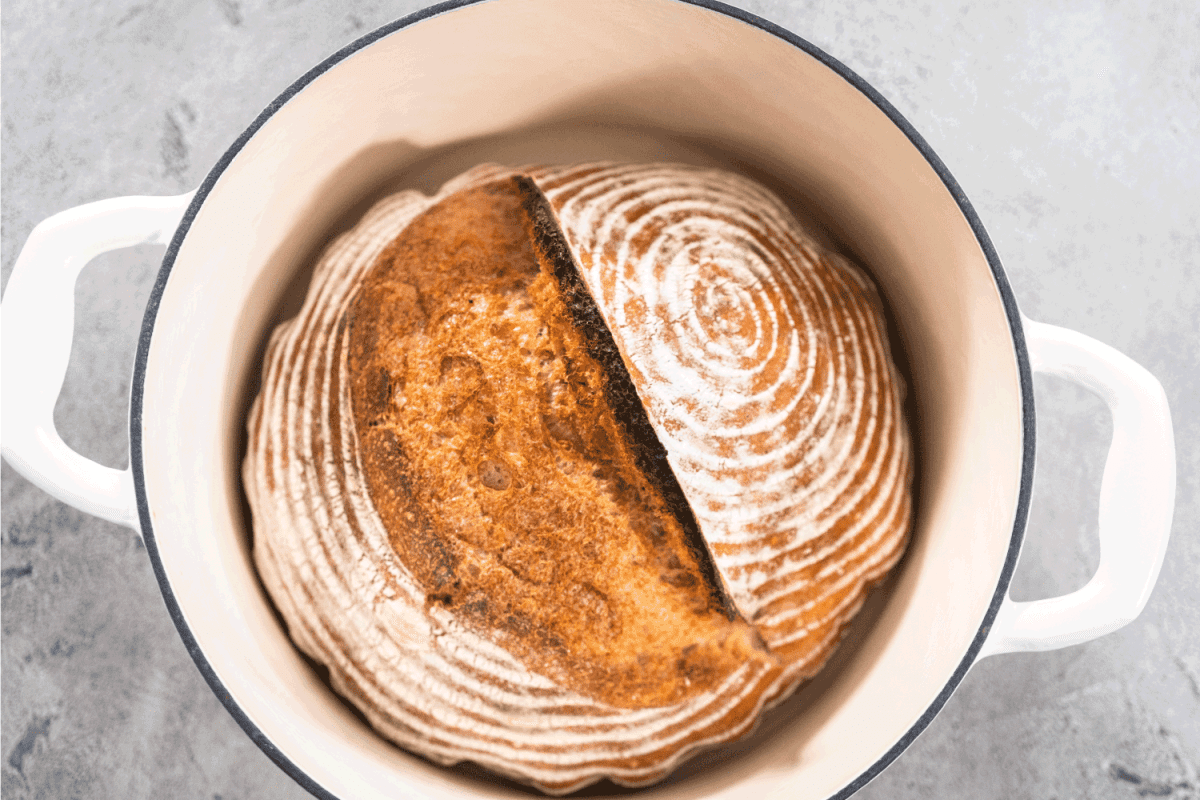
Although this shouldn't happen often, you can grind coffee too fine to run through an espresso machine. Typically, super fine coffee will make its way through your system's filter, resulting in bitter-tasting espresso.
Grinding coffee too fine might also cause channeling which results in watery espresso, so it's good to use a slightly thicker grind setting. That said, you don't want to have your grind too thick, as this can make your shot times longer and your coffee weak, so try to find a happy medium.
Read more: How Long Does A Single Shot Of Espresso Take?
How Do You Increase Espresso Extraction?
For anyone having issues with their espresso extraction, try to adjust your machine's current grind settings. Usually, a finer grind will increase extraction and strength at the same time, so we recommend doing this if you want stronger, better-tasting coffee.
Again, every appliance will be slightly different, so refer to your system's instructions before making any adjustments.
How Long Will An Espresso Machine Last?
You can usually expect an espresso machine to last between 5 and 15 years. Although this will depend on how well your device is made and how well it is maintained, espresso machines should work for quite a while.
That said, many brands offer 1- to 3-year warranties on their products if anything happens, so we recommend finding an appliance with a warranty period.
Read more: How Long Does An Espresso Machine Last?
Is It Worth Repairing An Espresso Machine?
Depending on the level of damage your espresso machine has, it's not always worth it to repair one. Usually, if the cost to fix your device is 50% or more of its original purchase price, you want to replace it instead, although this isn't very common.
Most machines just need professional overhaul and cleaning, so yours might be broken due to poor maintenance. Again, it's essential to regularly clean and descale your espresso maker to prevent costly repairs, so don't forget to do this.
To Wrap It Up
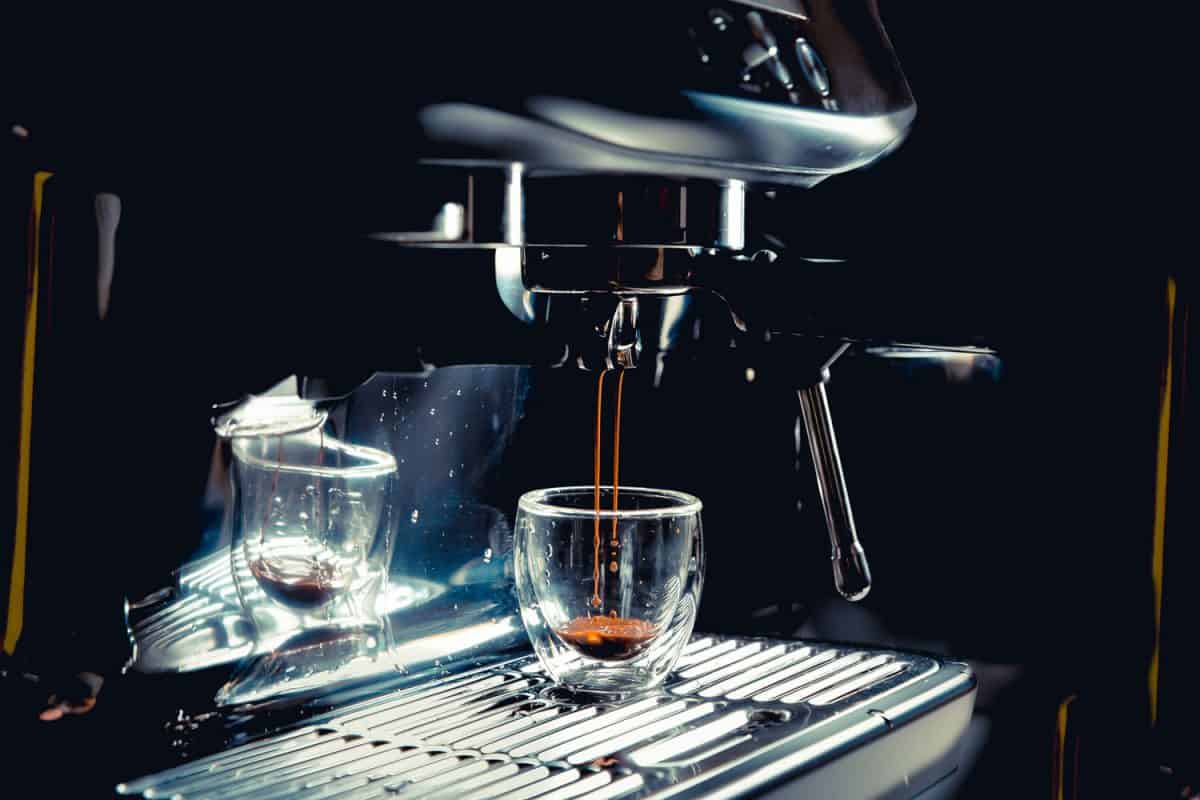
Whether you recently started using an espresso machine or have been for years, it's important to know how to fix one. Your espresso maker likely isn't dripping due to a clogged or faulty brew valve, so it's a good idea to give your appliance a deep clean.
You can also try reaching out to your espresso machine's manufacturer if issues persist after descaling because there might be a bigger problem/defect at hand. That said, you want to descale your espresso machine every 3-6 months to keep it running smoothly, and use a specialty cleaning solution or diluted vinegar.
Regardless, make sure to keep your appliance clean, and don't forget to soak its filter(s) for 10-15 minutes in an espresso machine-friendly solution every month or so.







